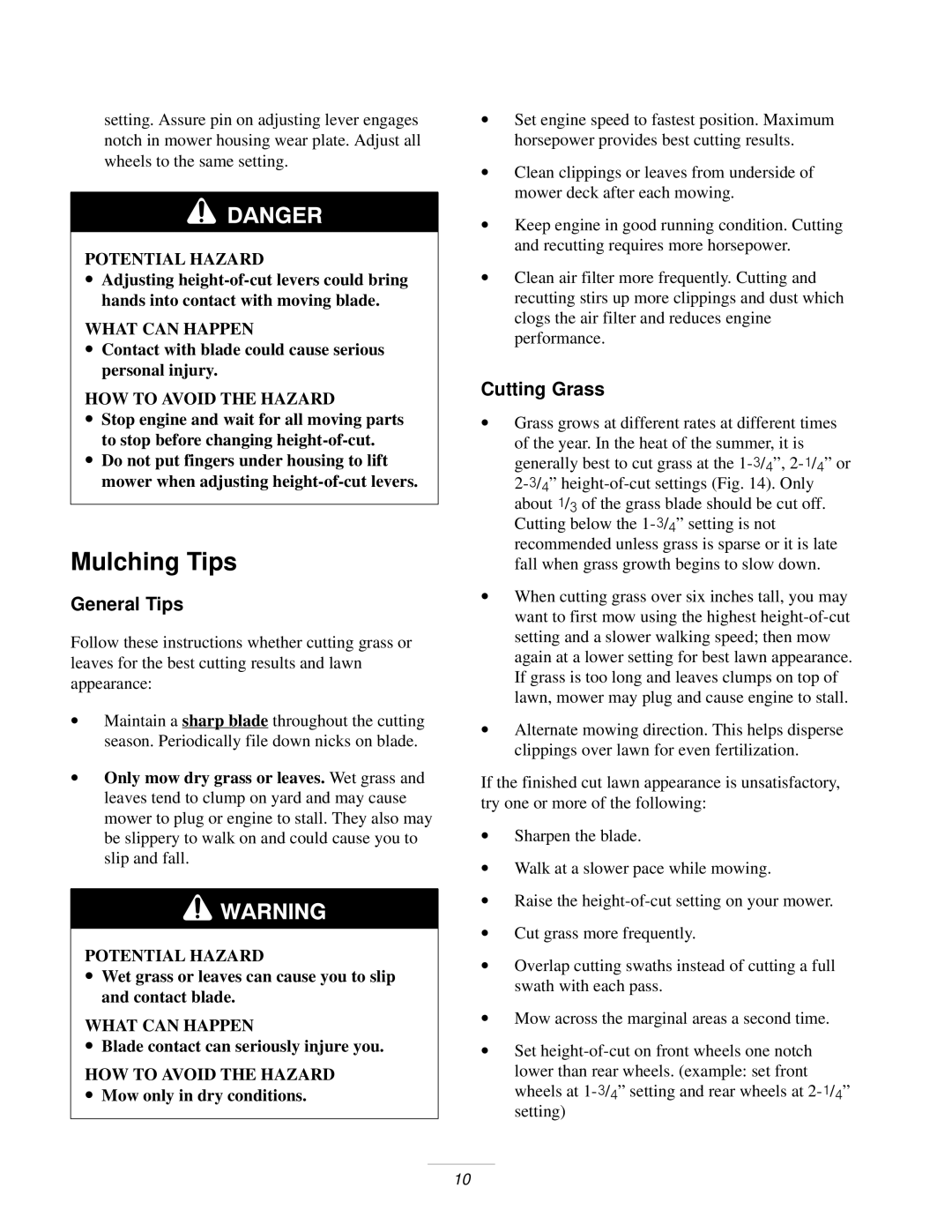
setting. Assure pin on adjusting lever engages notch in mower housing wear plate. Adjust all wheels to the same setting.
POTENTIAL HAZARD
•Adjusting
WHAT CAN HAPPEN
•Contact with blade could cause serious personal injury.
HOW TO AVOID THE HAZARD
•Stop engine and wait for all moving parts to stop before changing
•Do not put fingers under housing to lift mower when adjusting
Mulching Tips
General Tips
Follow these instructions whether cutting grass or leaves for the best cutting results and lawn appearance:
•Maintain a sharp blade throughout the cutting season. Periodically file down nicks on blade.
•Only mow dry grass or leaves. Wet grass and leaves tend to clump on yard and may cause mower to plug or engine to stall. They also may be slippery to walk on and could cause you to slip and fall.
POTENTIAL HAZARD
•Wet grass or leaves can cause you to slip and contact blade.
WHAT CAN HAPPEN
•Blade contact can seriously injure you.
HOW TO AVOID THE HAZARD
•Mow only in dry conditions.
•Set engine speed to fastest position. Maximum horsepower provides best cutting results.
•Clean clippings or leaves from underside of mower deck after each mowing.
•Keep engine in good running condition. Cutting and recutting requires more horsepower.
•Clean air filter more frequently. Cutting and recutting stirs up more clippings and dust which clogs the air filter and reduces engine performance.
Cutting Grass
•Grass grows at different rates at different times of the year. In the heat of the summer, it is generally best to cut grass at the
•When cutting grass over six inches tall, you may want to first mow using the highest
•Alternate mowing direction. This helps disperse clippings over lawn for even fertilization.
If the finished cut lawn appearance is unsatisfactory, try one or more of the following:
•Sharpen the blade.
•Walk at a slower pace while mowing.
•Raise the
•Cut grass more frequently.
•Overlap cutting swaths instead of cutting a full swath with each pass.
•Mow across the marginal areas a second time.
•Set
10
